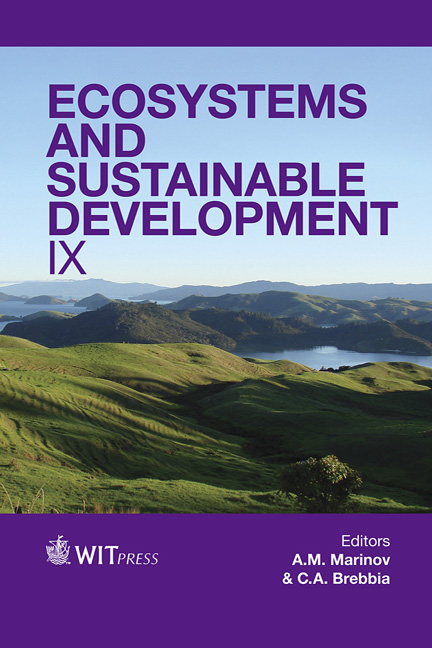Improvement Of An Induced Autotetraploid Population Of Lotus Tenuis For Their Use In The Flooding Pampas
Price
Free (open access)
Transaction
Volume
175
Pages
9
Page Range
21 - 29
Published
2013
Size
741 kb
Paper DOI
10.2495/ECO130031
Copyright
WIT Press
Author(s)
M. Barufaldi, Y, Villacampa, F. García-Alonso & P. Sastre-Vázquez
Abstract
In the Flooding Pampas, Argentina, as agricultural expansion spread into areas historically used for livestock grazing, it came to occupy the best soils in the area. The need therefore arose to increase the production of forage species able to adapt to increasingly stressed soil conditions. Lotus tenuis is an exotic leguminous forage plant that has successfully acclimatised to the ecological conditions of the natural pastures in the Pampa Deprimida area. It is hugely important for the animal production systems operating in the region. The plants of the induced autotetraploid population known as \“Leonel” (2n=4x = 24) are larger, more vigorous and more productive than their diploid counterparts. They produce fewer yet heavier seeds. The objective of this study is to assess certain aspects of seed production in autotetraploid plants selected by the following characteristics: plant vigour, production of dry matter and persistence. A field trial was conducted over two years with 20 selected genotypes. A block design with three repetitions was used. The following variables were assessed: number of flowers and pods by inflorescence; plant vigour; total number of seeds, both in full and pod by pod; and weight per thousand seeds. Variables were transformed when necessary for the data analysis.
Keywords
Lotus tenuis, induced autotetraploid, grassland, heritability in wide sense





